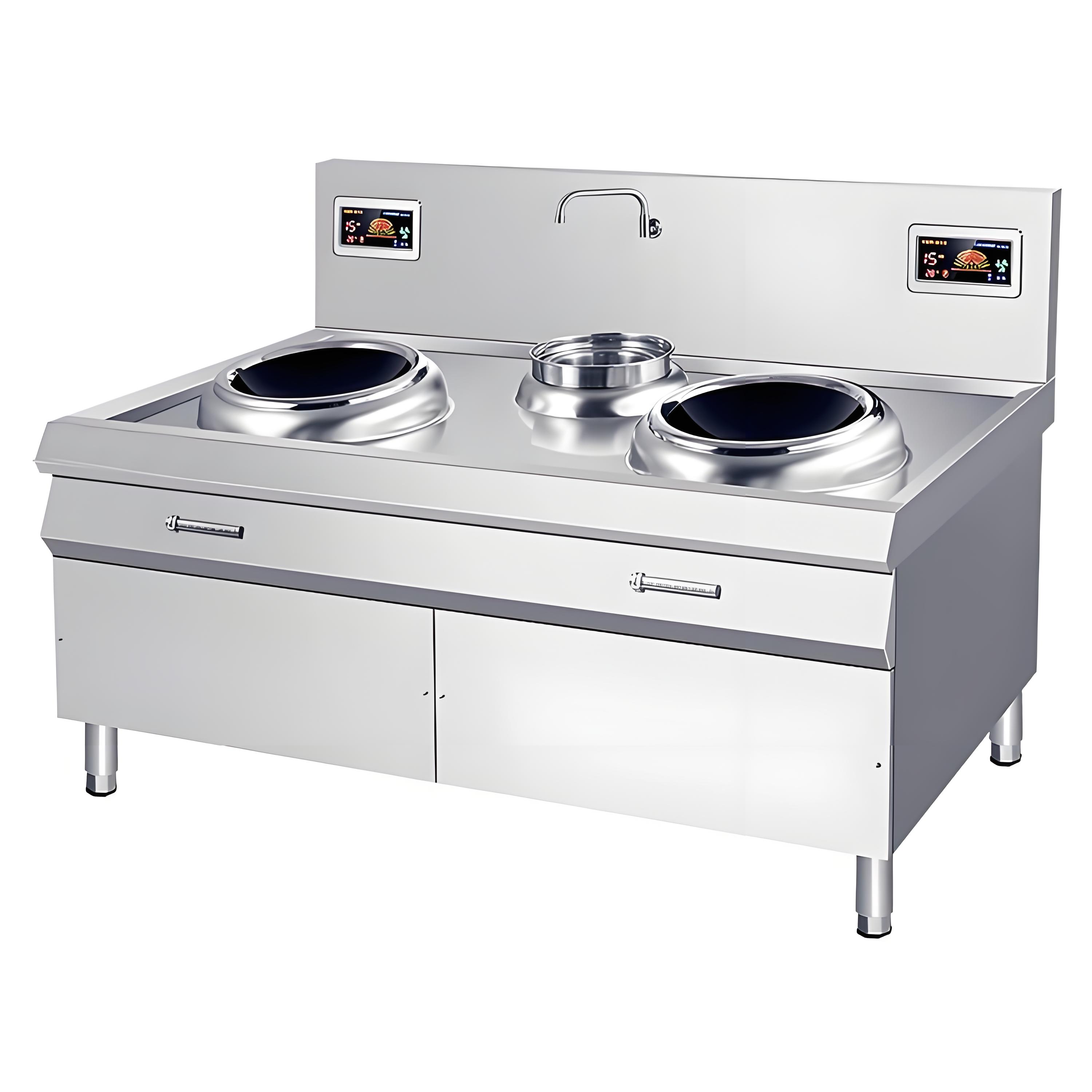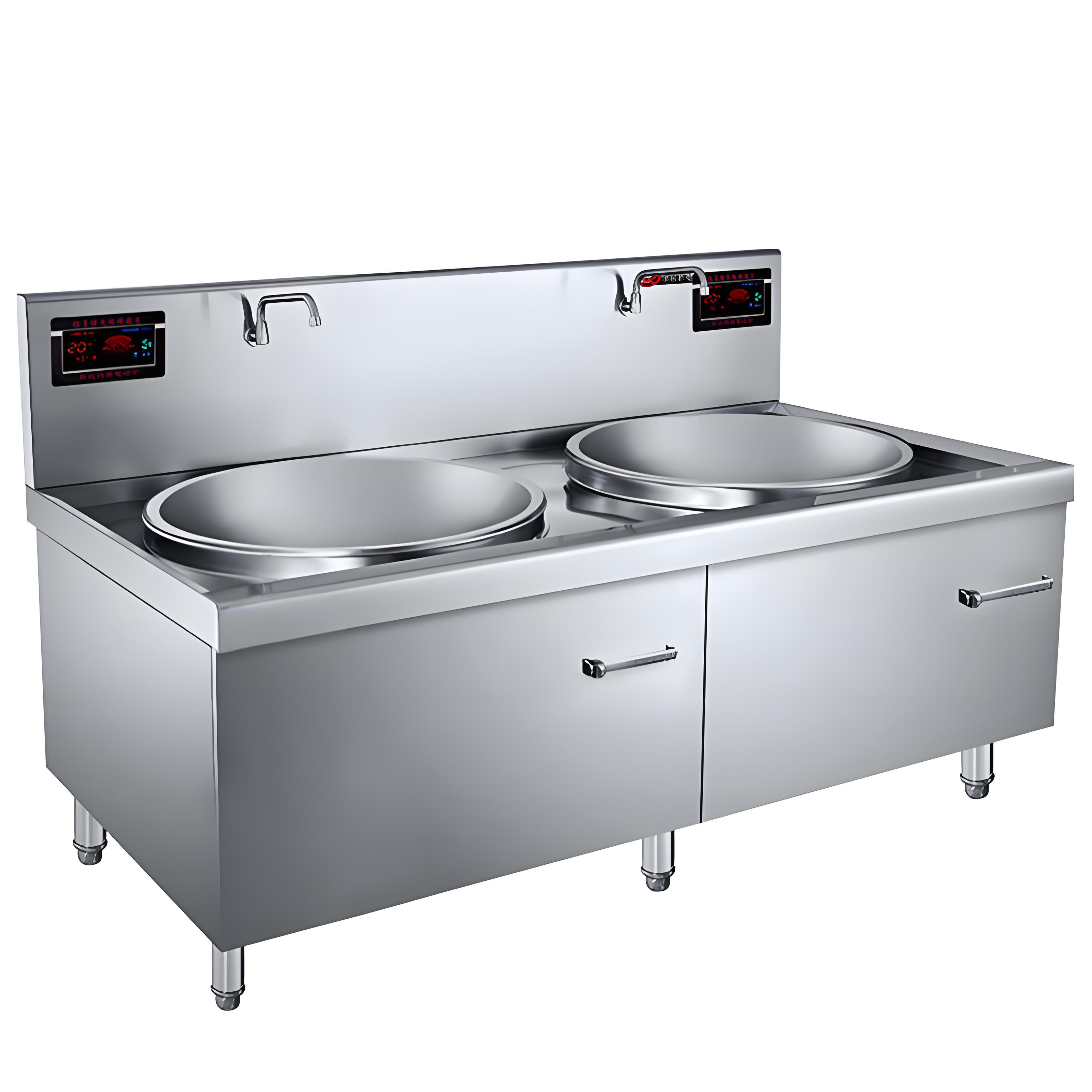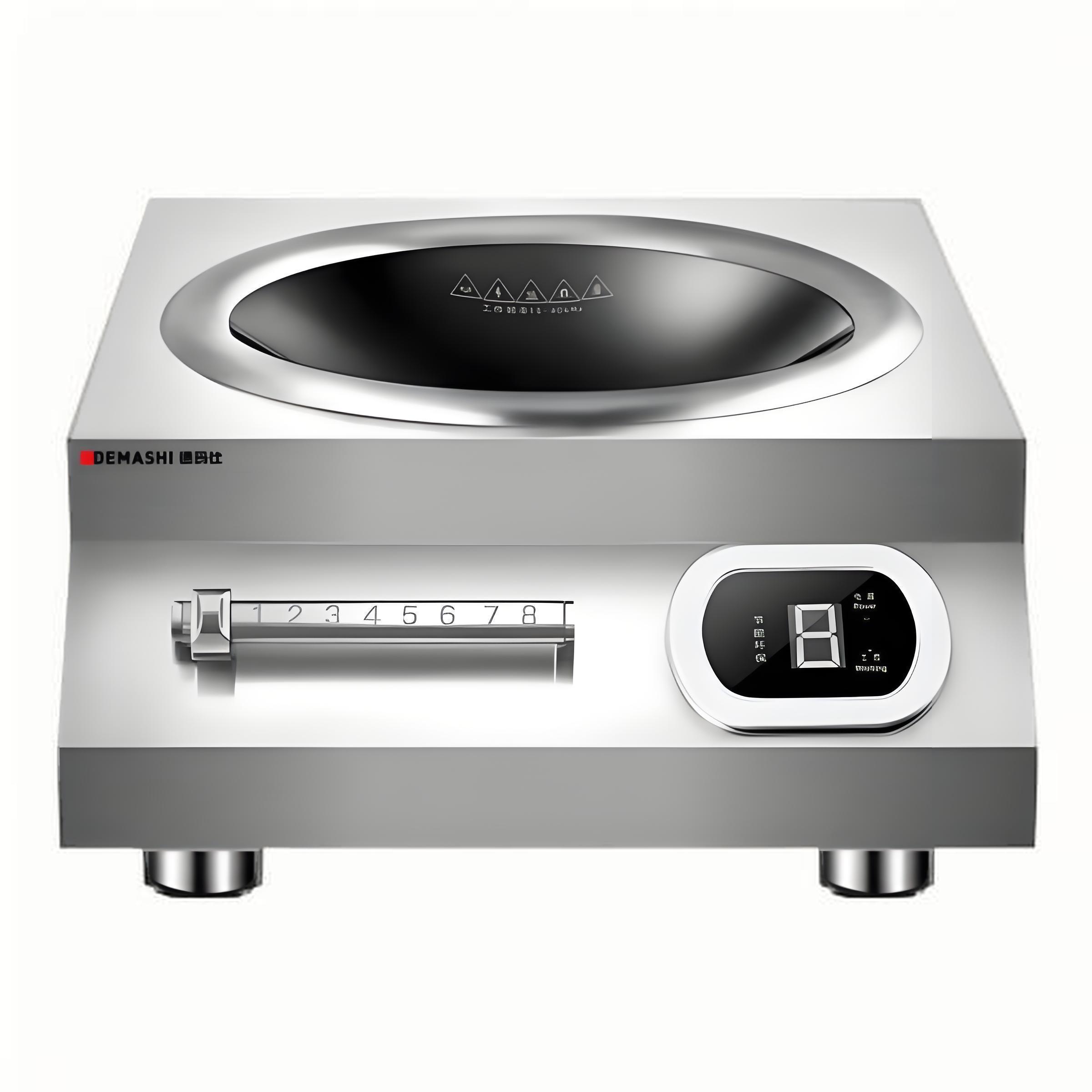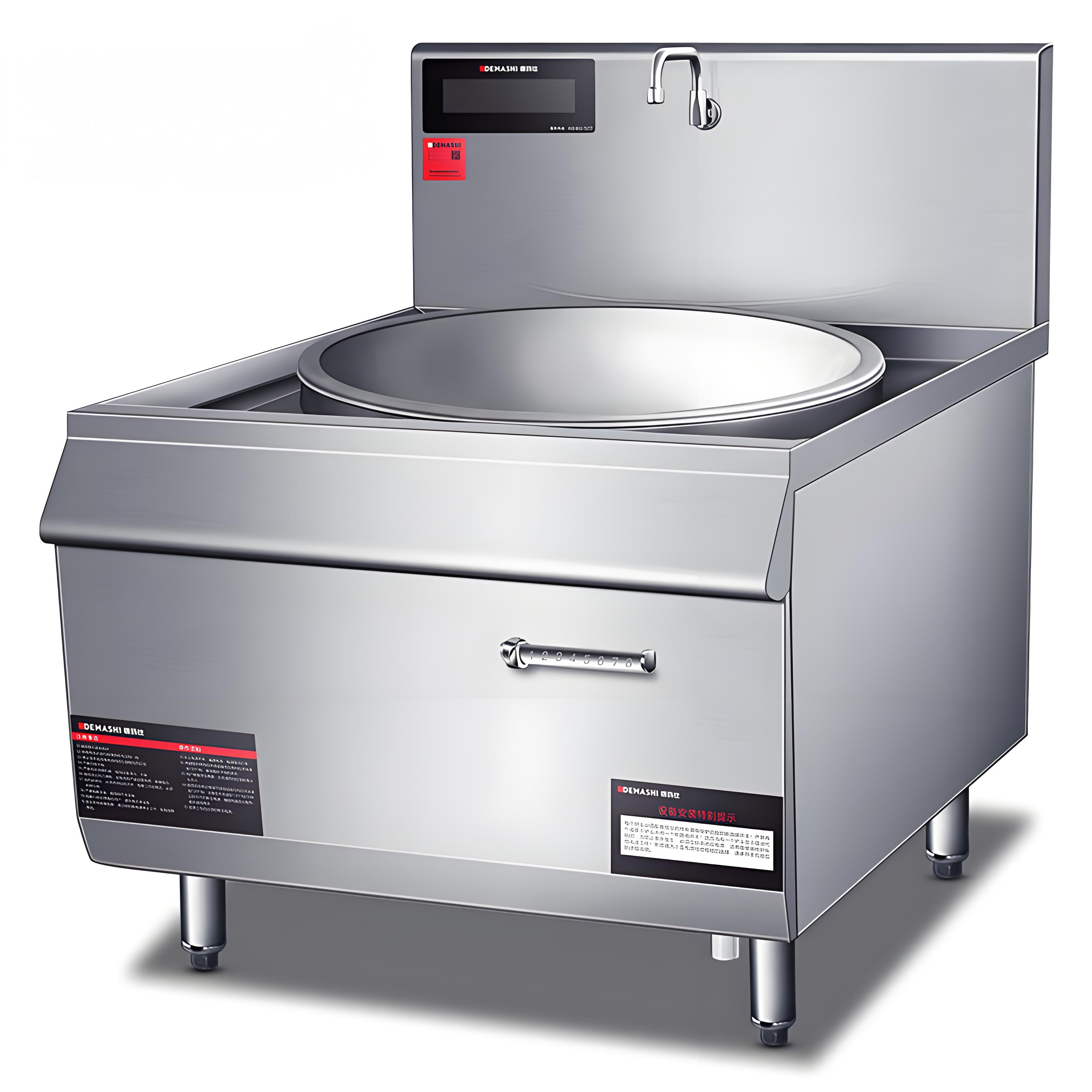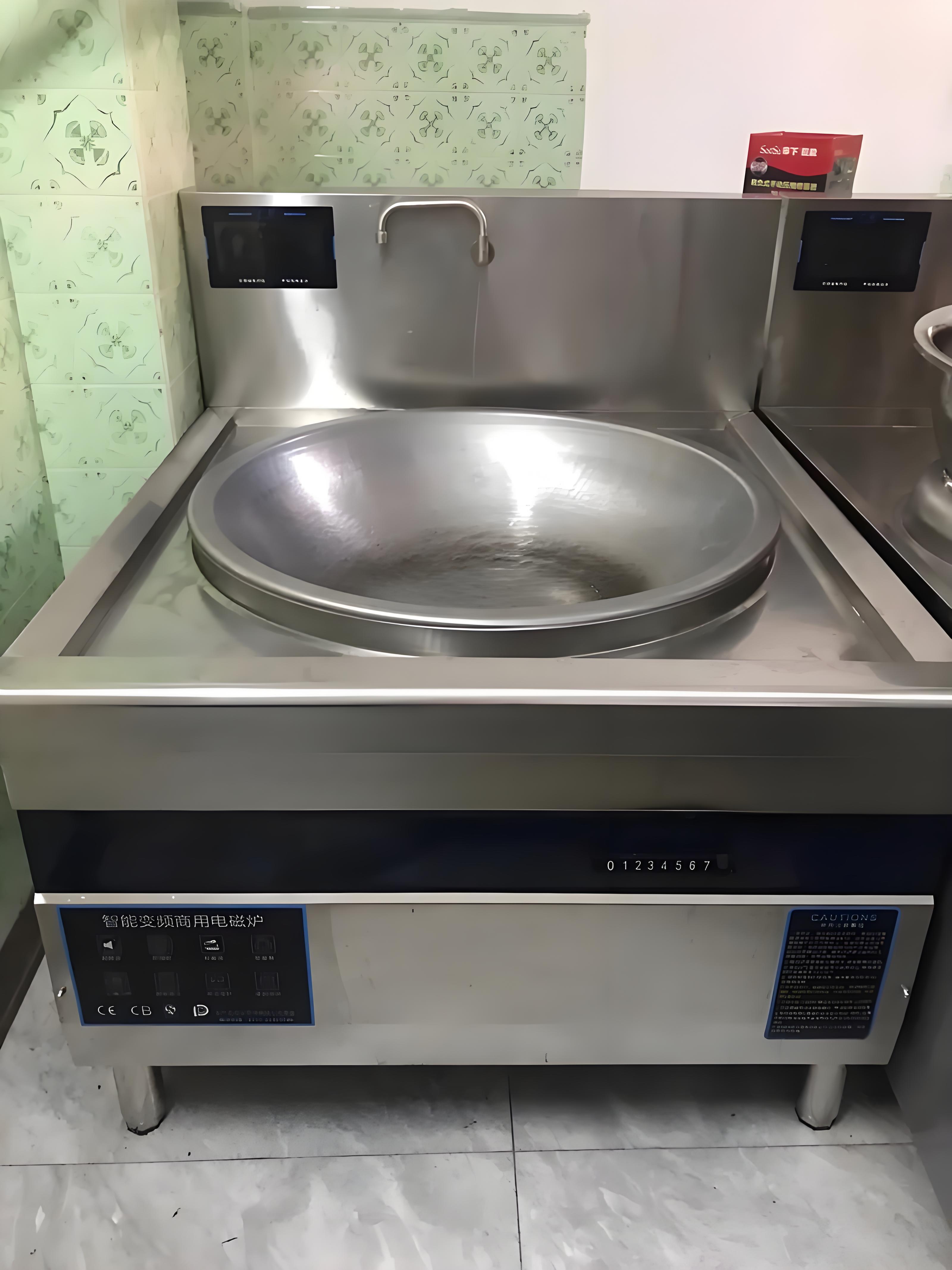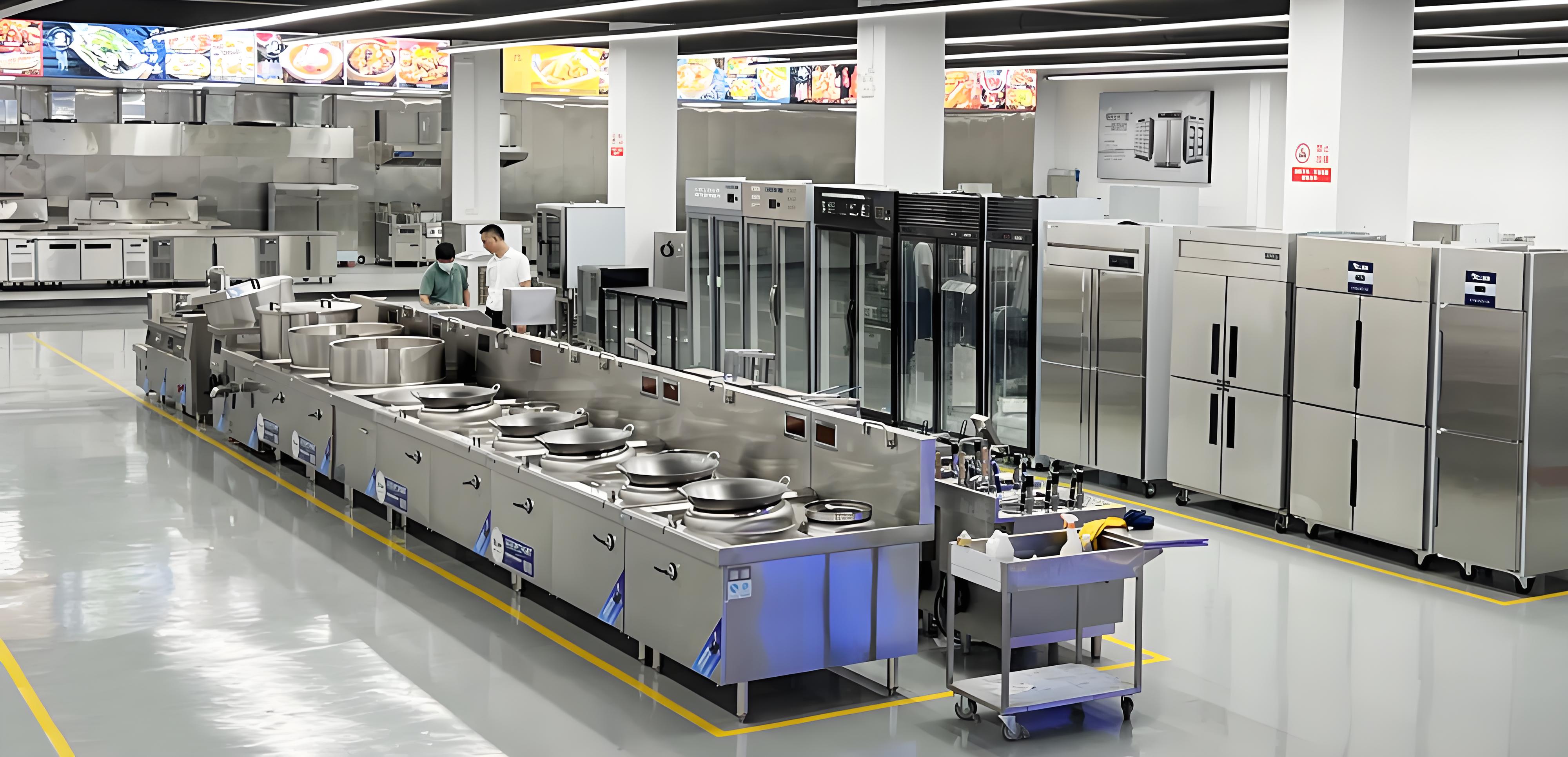In the bustling world of commercial kitchens and outdoor catering events, the choice of cooking equipment plays a pivotal role in ensuring efficiency, safety, and the quality of the food served. Among the various options available, commercial induction cooktops have gained significant popularity due to their energy efficiency, precise temperature control, and sleek design. However, when it comes to outdoor use, many people wonder: Are commercial induction cooktops suitable for outdoor settings?
As someone who has been deeply involved in the commercial kitchen equipment industry for years, I’ve had the opportunity to work with a wide range of cooking appliances, including commercial induction cooktops. In this comprehensive guide, I’ll share my insights and experiences to help you understand whether commercial induction cooktops are a good fit for outdoor use and what factors you should consider before making a decision.

Understanding Commercial Induction Cooktops
Before diving into the topic of outdoor use, let’s first understand what commercial induction cooktops are and how they work. Commercial induction cooktops use electromagnetic fields to heat cookware directly, rather than relying on a traditional heating element. This technology offers several advantages over conventional gas or electric cooktops, including:
Energy Efficiency: Induction cooktops transfer heat directly to the cookware, resulting in less energy waste and faster cooking times.
Precise Temperature Control: Induction cooktops allow for precise temperature adjustments, making it easier to achieve consistent cooking results.
Safety: Since the cooktop surface doesn’t get as hot as traditional cooktops, there’s a reduced risk of burns and fires.
Ease of Cleaning: The smooth surface of induction cooktops makes them easy to clean and maintain.
The Appeal of Outdoor Use
Outdoor catering events, food trucks, and open-air restaurants have become increasingly popular in recent years. These settings offer a unique dining experience and allow businesses to reach a wider audience. However, outdoor environments present unique challenges when it comes to cooking equipment, including exposure to the elements, varying temperatures, and limited access to utilities.
Given these challenges, many businesses are looking for cooking equipment that can withstand outdoor conditions while still delivering the performance and reliability they need. This is where the question of whether commercial induction cooktops are suitable for outdoor use arises.
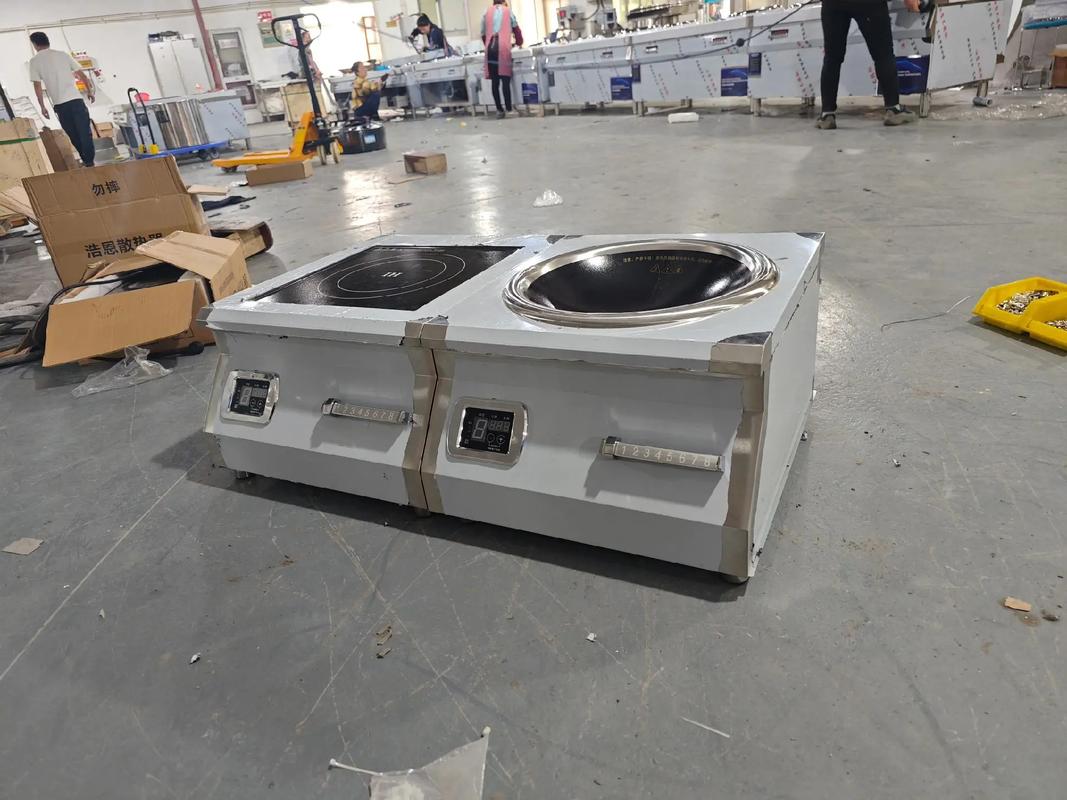
Factors to Consider When Using Commercial Induction Cooktops Outdoors
1. Weather Resistance
One of the primary concerns when using commercial induction cooktops outdoors is their resistance to weather elements. Induction cooktops are typically designed for indoor use, where they’re protected from rain, wind, and extreme temperatures. When used outdoors, they’re exposed to these elements, which can potentially damage the cooktop’s electronics and components.
Key Considerations:
Waterproofing: Look for induction cooktops that are waterproof or have a high IP (Ingress Protection) rating to protect against rain and moisture.
Temperature Range: Ensure the cooktop can operate effectively in a wide range of temperatures, from freezing cold to scorching heat.
UV Protection: Some induction cooktops may have surfaces that are susceptible to fading or discoloration when exposed to direct sunlight. Look for models with UV-resistant coatings.
2. Power Supply
Commercial induction cooktops require a stable and reliable power supply to operate effectively. In outdoor settings, access to electricity may be limited or unreliable, especially in remote locations or during power outages.
Key Considerations:
Voltage Requirements: Check the cooktop’s voltage requirements and ensure they match the available power supply at your outdoor location.
Portable Generators: Consider using a portable generator to provide a stable power source for the induction cooktop. However, be aware of the generator’s capacity and ensure it can handle the cooktop’s power draw.
Battery Backup: Some induction cooktops may offer battery backup options for short-term use in case of power outages. This can be a useful feature for outdoor events where power reliability is a concern.
3. Durability and Construction
Outdoor environments can be harsh on cooking equipment, with exposure to dust, debris, and physical impacts. Commercial induction cooktops used outdoors need to be durable and well-constructed to withstand these conditions.
Key Considerations:
Material Quality: Look for induction cooktops made from high-quality, durable materials that can resist wear and tear.
Impact Resistance: Ensure the cooktop’s surface and components are resistant to impacts and can withstand accidental drops or bumps.
Sealed Components: Check that the cooktop’s electronics and components are sealed to prevent dust and debris from entering and causing damage.
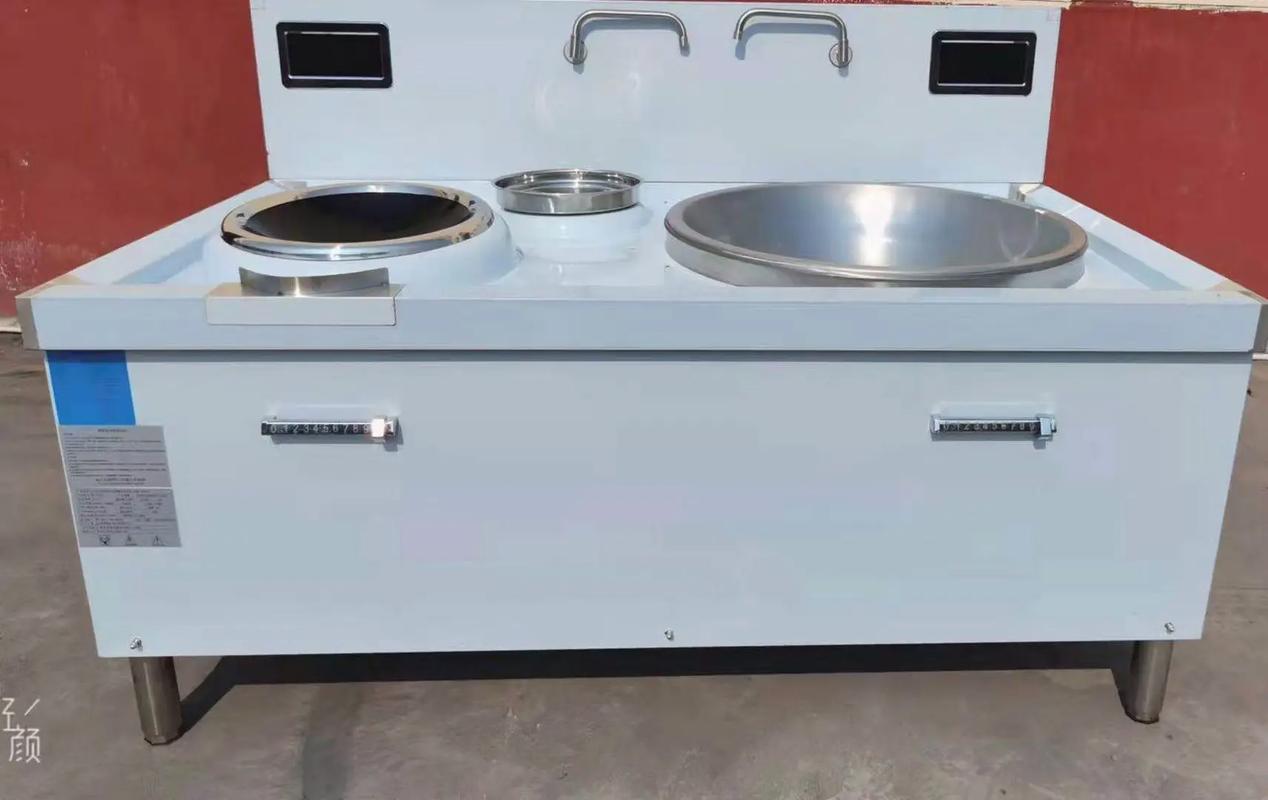
4. Safety Features
Safety is always a top priority when it comes to cooking equipment, especially in outdoor settings where there may be more people and activities happening around the cooktop.
Key Considerations:
Automatic Shut-Off: Look for induction cooktops with automatic shut-off features that activate if the cooktop overheats or is left unattended for an extended period.
Child Lock: Some models may offer a child lock feature to prevent accidental activation or temperature adjustments.
Non-Slip Feet: Ensure the cooktop has non-slip feet to keep it stable on uneven outdoor surfaces.
5. Portability and Ease of Use
In outdoor catering events or food truck operations, portability and ease of use are crucial factors to consider. You need cooking equipment that can be easily transported, set up, and operated in different locations.
Key Considerations:
Weight and Size: Look for induction cooktops that are lightweight and compact enough to be easily transported in a vehicle.
Carrying Handles: Ensure the cooktop has sturdy carrying handles to make it easier to move around.
User-Friendly Controls: Choose a model with intuitive, easy-to-use controls that can be operated even by staff members with limited experience.
Table: Pros and Cons of Using Commercial Induction Cooktops Outdoors
| Aspect | Pros | Cons |
|---|---|---|
| Energy Efficiency | High energy efficiency, reducing operating costs | May require a stable power supply, which can be challenging in outdoor settings |
| Precise Temperature Control | Allows for precise cooking, ensuring consistent food quality | May be less forgiving of power fluctuations, affecting cooking performance |
| Safety | Reduced risk of burns and fires due to cooler cooktop surface | May still pose a risk if not used properly or if safety features are not utilized |
| Ease of Cleaning | Smooth surface makes cleaning quick and easy | Outdoor debris may accumulate on the surface, requiring more frequent cleaning |
| Portability | Some models are designed to be portable, making them suitable for outdoor events | May be heavier and bulkier than traditional outdoor cooking equipment |
| Weather Resistance | High-quality models may offer weather resistance features | Many models are not designed for outdoor use and may not withstand harsh weather conditions |
Real-World Examples and Case Studies
To better understand the practicality of using commercial induction cooktops outdoors, let’s look at some real-world examples and case studies.
Case Study 1: Outdoor Food Festival
A popular food festival decided to incorporate commercial induction cooktops into their outdoor cooking stations to offer a more efficient and environmentally friendly cooking option. The festival organizers chose induction cooktops with high IP ratings and waterproof designs to protect against rain and moisture. They also used portable generators to provide a stable power supply.
Outcome: The induction cooktops performed well, offering precise temperature control and fast cooking times. The festival organizers reported reduced energy costs compared to traditional gas cooktops and were pleased with the ease of cleaning and maintenance. However, they did note that the cooktops required more frequent cleaning due to outdoor debris and that the portable generators needed to be monitored closely to ensure they didn’t run out of fuel.
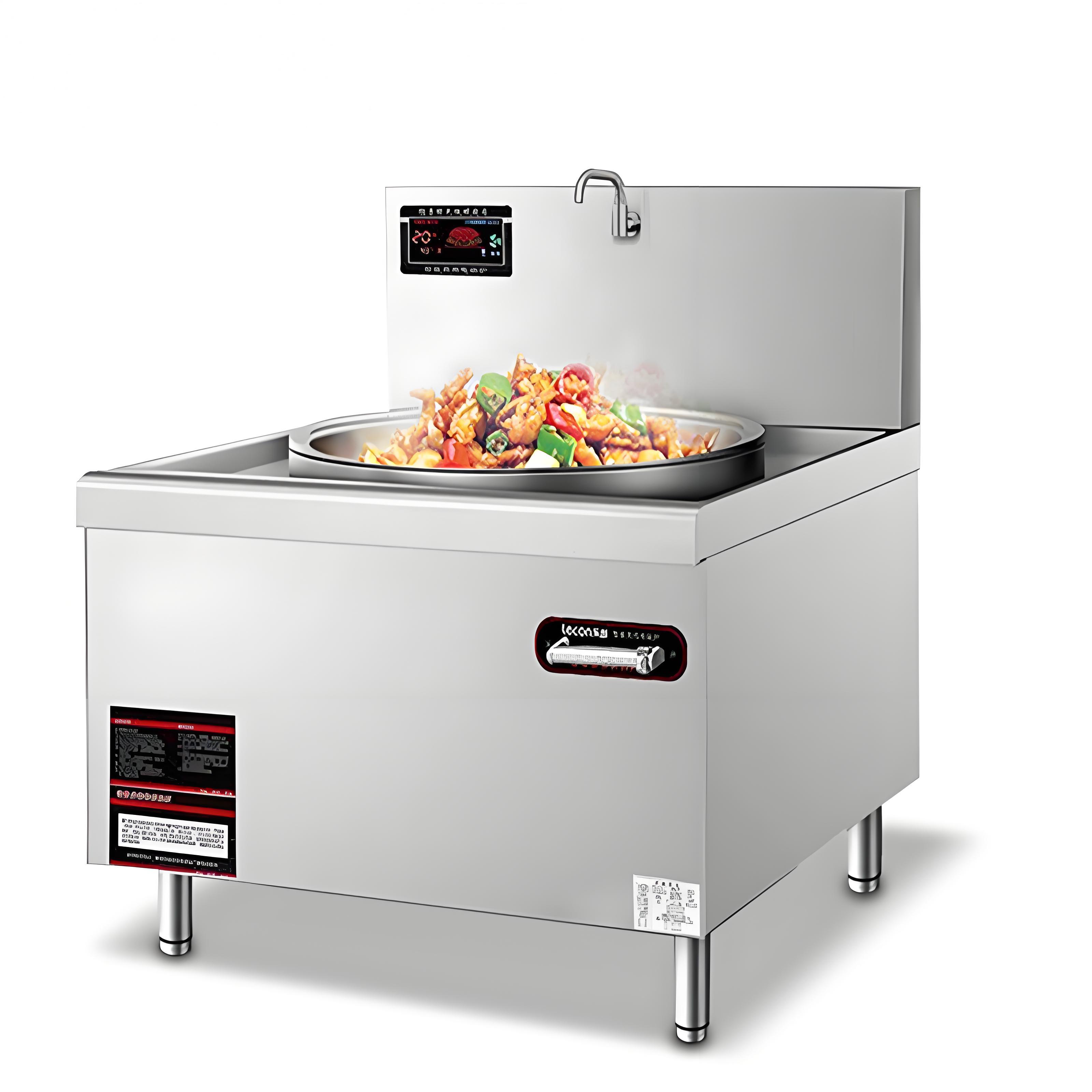
Case Study 2: Food Truck Operation
A food truck owner decided to upgrade their cooking equipment to commercial induction cooktops to improve efficiency and reduce operating costs. The food truck operates in various outdoor locations, including parks, festivals, and street fairs. The owner chose induction cooktops with durable construction and non-slip feet to ensure stability on uneven surfaces.
Outcome: The induction cooktops have been a great addition to the food truck, offering fast cooking times and precise temperature control. The owner has reported increased customer satisfaction due to the consistent quality of the food and has noticed a reduction in energy costs. However, the owner did mention that the cooktops require a stable power supply and that they’ve had to invest in a high-capacity portable generator to ensure reliable operation.
Tips for Using Commercial Induction Cooktops Outdoors
Based on my experience and the case studies above, here are some tips for using commercial induction cooktops outdoors:
Choose the Right Model: Look for induction cooktops specifically designed for outdoor use or with features that make them suitable for outdoor environments, such as high IP ratings, waterproof designs, and durable construction.
Ensure a Stable Power Supply: Use a portable generator or ensure access to a reliable power source to prevent power outages or fluctuations that could affect the cooktop’s performance.
Protect from the Elements: Use a canopy or tent to shield the cooktop from rain, wind, and direct sunlight. This will help to protect the electronics and components and extend the cooktop’s lifespan.
Clean Regularly: Outdoor debris can accumulate on the cooktop’s surface, so be sure to clean it regularly to prevent buildup and ensure optimal performance.
Train Staff: Ensure that staff members are trained on how to use the induction cooktop safely and effectively. This includes understanding the cooktop’s features, such as temperature controls and safety features.
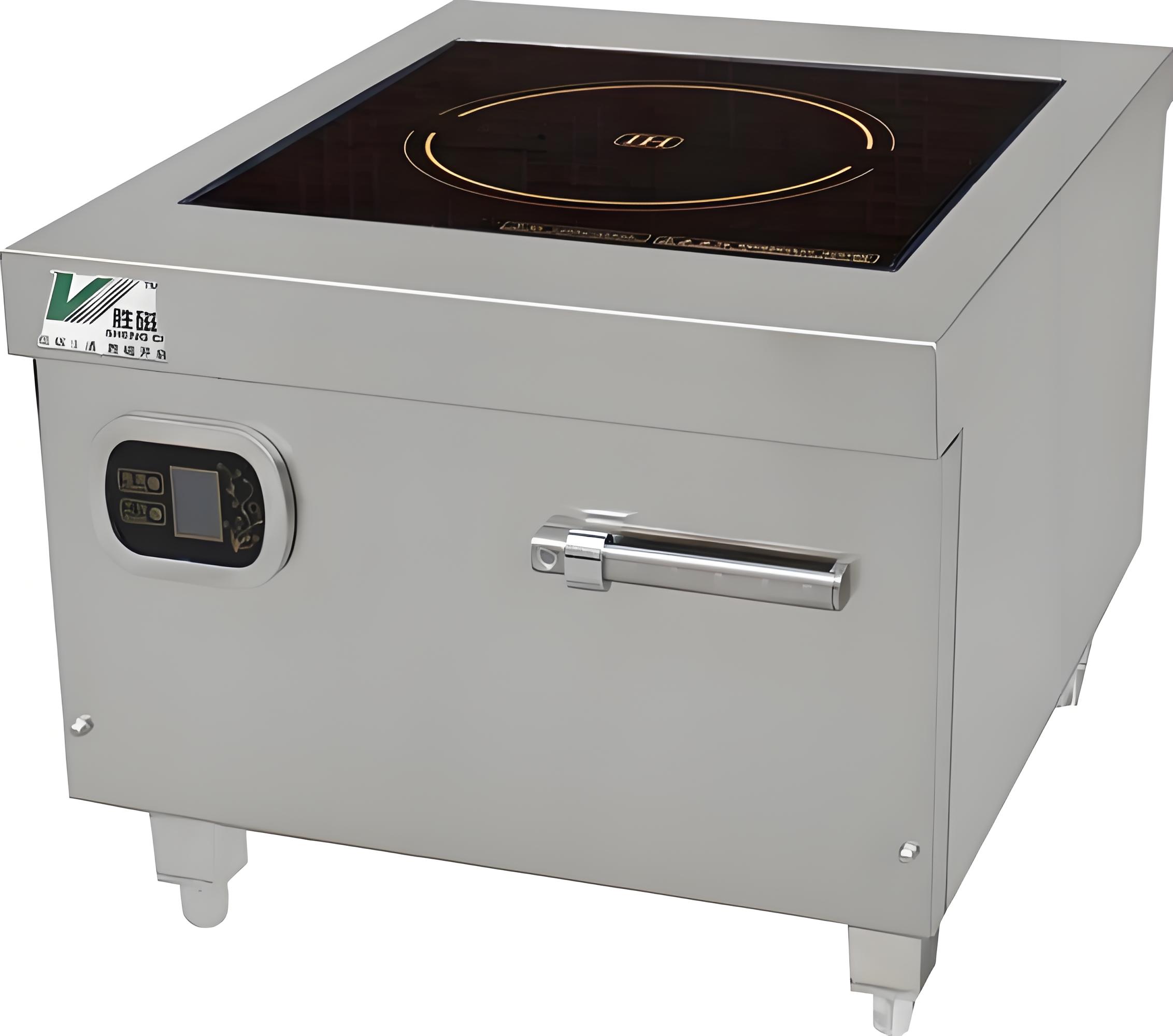
Final Thoughts
In conclusion, while commercial induction cooktops are primarily designed for indoor use, they can be suitable for outdoor settings with the right considerations and precautions. By choosing a model with weather resistance features, ensuring a stable power supply, protecting the cooktop from the elements, and following proper cleaning and maintenance practices, you can successfully use commercial induction cooktops outdoors.
However, it’s important to weigh the pros and cons carefully and consider your specific needs and requirements before making a decision. If you’re unsure whether an induction cooktop is the right choice for your outdoor catering event or food truck operation, consult with a professional in the commercial kitchen equipment industry who can provide personalized advice and recommendations.

Related Questions
1. Can I use any type of cookware with a commercial induction cooktop outdoors?
Yes, you can use most types of cookware with a commercial induction cooktop, as long as the cookware is made from a ferromagnetic material, such as cast iron or stainless steel. However, it’s important to ensure that the cookware is suitable for outdoor use and can withstand the elements. Avoid using cookware with non-stick coatings that may be damaged by exposure to high temperatures or outdoor debris.
2. How do I clean a commercial induction cooktop used outdoors?
Cleaning a commercial induction cooktop used outdoors is similar to cleaning one used indoors. Use a soft, damp cloth to wipe down the surface and remove any food debris or spills. For stubborn stains, use a mild detergent or a specialized induction cooktop cleaner. Avoid using abrasive cleaners or scrubbers that could scratch the surface.
3. Can I use a commercial induction cooktop in extreme temperatures?
While some commercial induction cooktops are designed to operate in a wide range of temperatures, extreme temperatures can still affect their performance and lifespan. In very cold temperatures, the cooktop’s electronics may not function properly, and in very hot temperatures, the cooktop may overheat. It’s important to check the manufacturer’s specifications and ensure that the cooktop can operate effectively in the temperature range of your outdoor location.
4. Are there any safety risks associated with using a commercial induction cooktop outdoors?
Using a commercial induction cooktop outdoors does come with some safety risks, especially if proper precautions are not taken. These risks include electrical hazards if the power supply is not stable or if the cooktop’s electronics are damaged by exposure to the elements. Additionally, there’s a risk of burns if the cooktop’s surface is not properly cooled or if staff members are not trained on how to use it safely. To minimize these risks, follow the manufacturer’s instructions, ensure a stable power supply, protect the cooktop from the elements, and train staff on proper usage and safety procedures.
5. How long do commercial induction cooktops last when used outdoors?
The lifespan of a commercial induction cooktop used outdoors depends on several factors, including the quality of the cooktop, the frequency of use, the outdoor conditions, and the level of maintenance. With proper care and maintenance, a high-quality commercial induction cooktop can last for many years, even when used outdoors. However, it’s important to regularly inspect the cooktop for signs of wear and tear and address any issues promptly to ensure its longevity.
